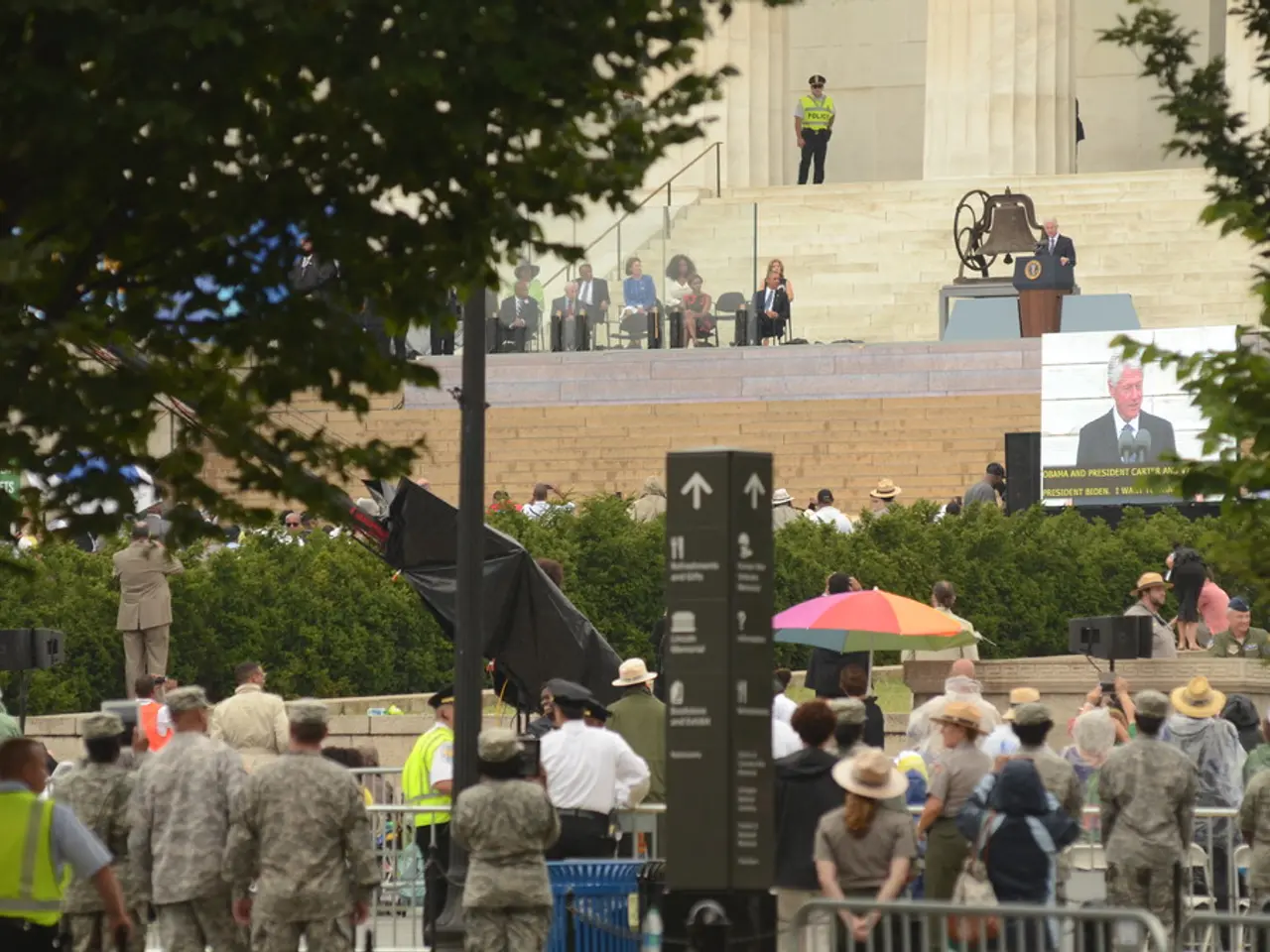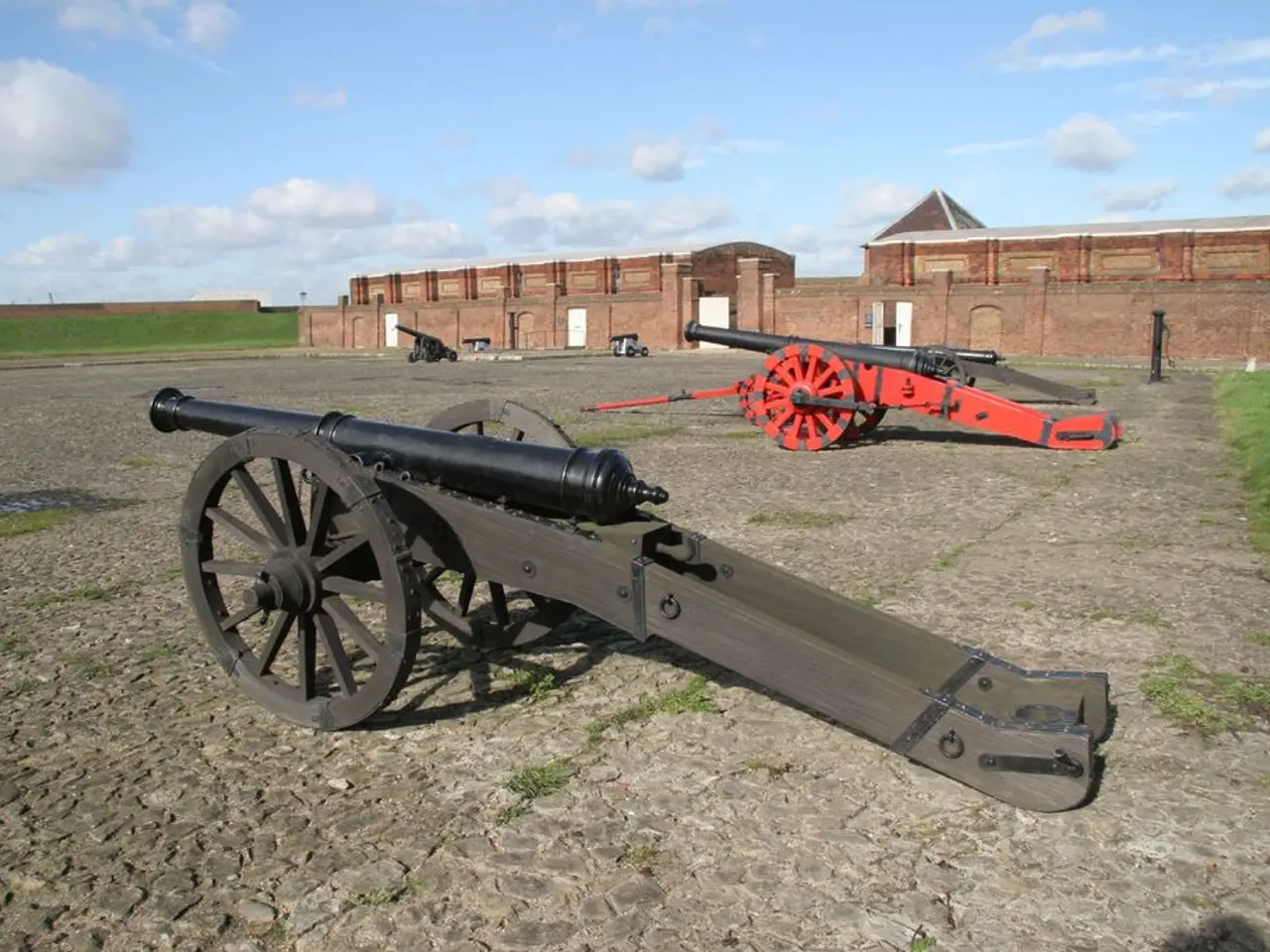President Duda Speaks at Katyn Massacre Anniversary: Deliberate Act of Mass Murder
The Katyn Massacre, a tragic event that took place in April-May 1940 during World War II, remains a significant and poignant chapter in Poland's history. This mass execution of Polish officers, intellectuals, and civilians by the Soviet NKVD, primarily in the Katyn Forest near Smolensk, Russia, claimed the lives of approximately 22,000 Polish citizens.
The Katyn Massacre was a deliberate attempt by the Soviet Union to eliminate Poland's leadership and intelligentsia, aiming to weaken the country's potential for resistance or future self-determination. The event severely strained relations between Poland and the Soviet Union and remains a contentious issue, with the Soviet Union denying responsibility until 1990, when Mikhail Gorbachev officially acknowledged the Soviet role in the massacre.
Today, the Katyn Massacre is deeply ingrained in Polish collective memory and is commemorated annually on April 13. It serves as a symbol of Polish martyrdom and resistance against Soviet oppression. In 2025, Poland's parliament has designated the Year of Polish Heroes from Katyn, Miednoje, Kharkiv, and Bykownia to honour the victims of these tragedies.
Nationwide commemorations were held throughout Poland to honour the victims of the Katyn Massacre. Central commemorations were organised by the Office for War Veterans and Victims of Oppression and the Museum of Polish Army History in Warsaw. Prime Minister Donald Tusk attended these commemorations alongside families of victims. President Andrzej Duda described the Katyn Massacre as a premeditated act of genocide targeting Poland's elite by the Soviet regime during World War II.
The Katyn Massacre has had a symbolic impact on Polish national identity, serving as a powerful symbol of Polish suffering under totalitarian regimes and a rallying point for anti-communist sentiment. It is worth noting that over 25% of all Poles with higher education degrees were among the victims, resulting in a significant loss for Poland's intellectual and cultural development.
Recently, scholars like Professor Andrzej Nowak have criticised Russian President Vladimir Putin for perpetuating historical falsehoods about Katyn. Professor Nowak accused Putin of engaging in "relativization" by suggesting that Soviet crimes against Poles were morally equivalent to Nazi atrocities or merely personal vendettas by Stalin. President Duda has also criticised contemporary Russian efforts under Vladimir Putin to manipulate historical narratives about Katyn.
The Katyn Massacre has left a lasting impact on Poland, influencing its politics, culture, and national identity. The event serves as a reminder of the importance of remembering historical losses under totalitarian regimes, as emphasised by Dr. Filip Musiał. President Duda concluded his speech at the Katyn Massacre commemoration with a call for eternal remembrance, reaffirming the significance of this tragic event in Poland's history.
- The Katyn Massacre, a tragic event during World War II, is a significant symbol of Polish resistance against Soviet oppression, particularly in the context of politics and national identity.
- In the realm of education, over a quarter of Poland's intellectual and cultural development was lost as a result of the Katyn Massacre, due to the high proportion of educated victims.
- Government officials, such as Prime Minister Donald Tusk and President Andrzej Duda, regularly commemorate the Katyn Massacre, acknowledging it as a deliberate act of genocide perpetrated by the Soviet regime during the war.
- In the sphere of law, debates continue over historical interpretations, with scholars like Professor Andrzej Nowak criticizing Russian President Vladimir Putin for distorting the truth about Katyn, while President Duda concurs with these criticisms, highlighting the manipulation of historical narratives by contemporary Russia.








